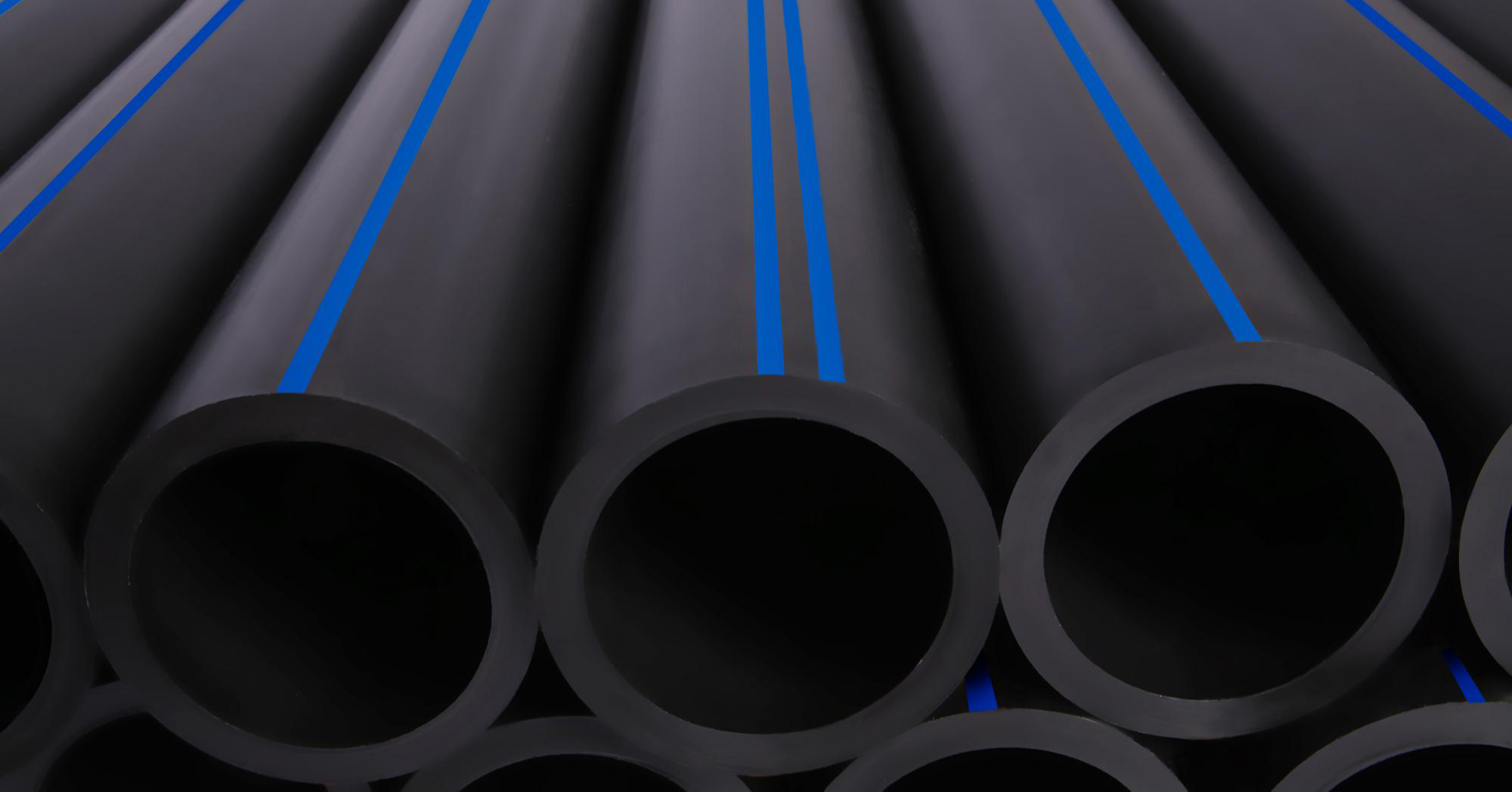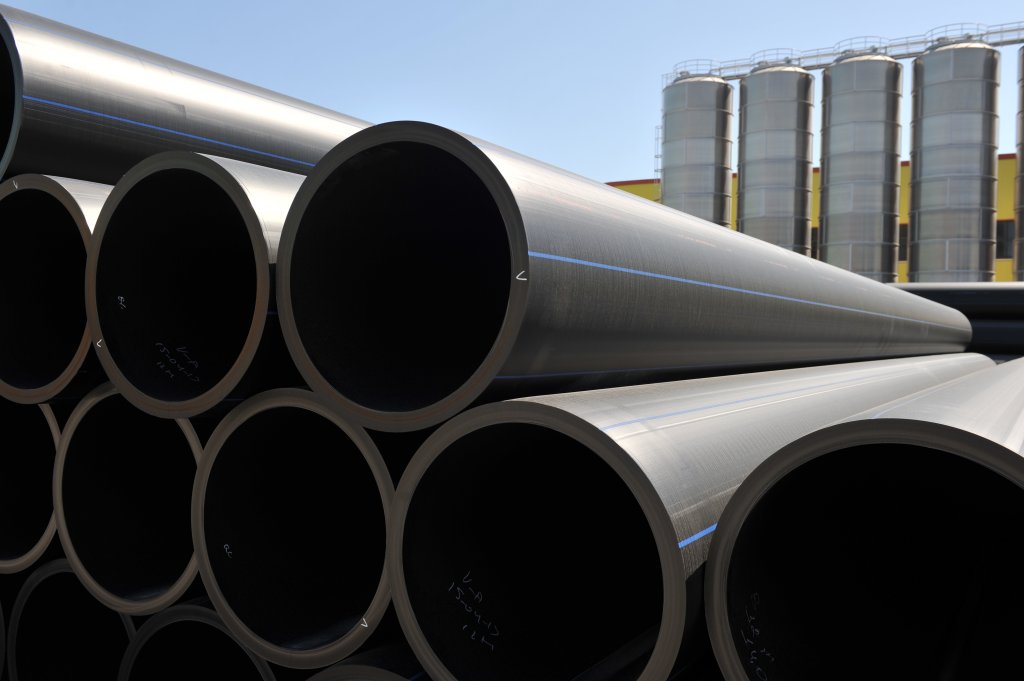Practical Overview to hdpe pipe fittings Midland TX and Their Uses
A Comprehensive Guide to the Different Uses HDPE Pipe in Construction and Sector
HDPE pipelines have actually become a pivotal part in modern-day building and construction and commercial applications. Their one-of-a-kind buildings, such as resistance to rust and light-weight layout, make them suitable for a vast array of uses. From water system systems to farming irrigation, HDPE pipes use remedies that enhance effectiveness and sustainability. Understanding their varied applications is essential for specialists aiming to maximize framework. What particular benefits do these pipelines offer each industry?
Water Supply and Distribution Solutions
Supply of water and distribution systems are crucial components of urban infrastructure, frequently counting on high-density polyethylene (HDPE) pipes for their toughness and performance. These systems transportation drinkable water from treatment centers to customers, ensuring accessibility and safety. HDPE pipes are favored for their resistance to rust, chemicals, and extreme temperatures, which improves their longevity and minimizes upkeep expenses. Furthermore, their lightweight nature permits much easier installation and transport, making them suitable for various metropolitan and rural applications.
The versatility of HDPE pipelines enables them to be mounted in tight areas and around barriers, lessening the demand for substantial excavation (American Plastics HDPE Pipe Manufacturing). Their smooth indoor surface area reduces rubbing losses, boosting water circulation rates. As cities remain to grow, the demand for trustworthy water supply systems boosts, placing HDPE pipelines as a sustainable option for modern-day infrastructure jobs. Their tried and tested performance history makes them a favored option amongst designers and city organizers alike
Wastewater Management and Treatment
Effective wastewater administration and therapy are essential for preserving public wellness and ecological quality. HDPE pipes play an essential function in this process because of their durability, resistance to corrosion, and ability to endure extreme chemicals. These pipelines are generally used in different applications, including sewer system, stormwater drain, and wastewater treatment facilities. Their lightweight nature helps with much easier setup and transportation, minimizing labor prices and time.
Furthermore, HDPE pipes have a smooth indoor surface area that lessens rubbing loss, promoting effective circulation rates. They are additionally much less vulnerable to leaks and failings compared to typical materials, guaranteeing that contaminants are had successfully. Additionally, their versatility permits for flexibility in different soil problems, making them suitable for varied environmental setups. As markets increasingly focus on lasting methods, using HDPE pipelines in wastewater administration systems aligns with objectives for minimizing environmental influence and boosting source recuperation.
Agricultural Watering Solutions
In farming setups, reliable watering solutions are vital for maximizing plant yields and managing water resources. HDPE (High-Density Polyethylene) pipes play an important duty in modern irrigation systems due to their resilience, flexibility, and resistance to deterioration. Their capability to endure high stress makes them optimal for both surface and subsurface irrigation applications, making sure consistent water circulation across fields.
Farmers can here utilize HDPE pipelines in drip watering systems, which deliver water straight to plant origins, lessening wastage and advertising healthy and balanced growth. In addition, these pipelines are lightweight and very easy to set up, decreasing labor prices and setup time. Their long life-span and low upkeep demands even more boost their charm in farming methods.
HDPE pipes are eco friendly, as they can be recycled and do not leach harmful chemicals right into the soil. This makes them a lasting option for farmers aiming to adopt environmentally friendly agricultural methods while making best use of performance.
Industrial Applications and Procedures
Adaptability is a trademark of HDPE pipes, making them crucial in numerous commercial applications and processes. These pipes are widely made use of in chemical handling markets because of their outstanding resistance to a wide variety of destructive substances. HDPE's lightweight nature, integrated with high tensile stamina, permits easy installation and lasting performance sought after atmospheres.
In the oil and gas sector, HDPE pipelines play a necessary role in transferring hydrocarbons and gases, thanks to their toughness and versatility - hdpe pipe in stock Midland TX. In addition, they are utilized in mining operations for the transport of slurry and various other products, where conventional piping systems might fail
HDPE pipelines are progressively utilized in making centers for water supply lines and wastewater monitoring. Their capacity to withstand extreme temperatures and pressures makes them suitable for a range of industrial processes. In general, HDPE pipelines add substantially to efficiency and safety across diverse industrial applications.
Stormwater Administration and Drainage Systems
Stormwater management and drain systems are essential elements in metropolitan facilities, created to handle excess rainfall and reduce flooding threats. High-density polyethylene (HDPE) pipelines are increasingly utilized in these systems due to their resilience, flexibility, and resistance to deterioration. These pipelines efficiently transport stormwater far from populated locations, reducing surface area overflow and preventing waterlogging.
HDPE's light-weight nature facilitates much easier installation, minimizing labor costs and construction time. Furthermore, its resistance to chemicals and ecological stressors warranties long life and dependability in various climates. In enhancement to traditional drain applications, HDPE pipelines are additionally utilized in ingenious options such as green infrastructure, that includes rainfall gardens and permeable pavements.

Regularly Asked Concerns
Just How Does HDPE Pipe Compare to PVC Pipeline in Price?
In basic, HDPE pipeline tends to be a lot more pricey than PVC pipeline due to its improved longevity and flexibility. However, long-term price factors to consider, such as upkeep and life expectancy, might prefer HDPE in particular applications.

What Is the Life-span of HDPE Pipeline Under Varying Conditions?
HDPE pipes typically have a lifespan of 50 to 100 years, relying on environmental problems, installment practices, and use. Aspects such as temperature, dirt type, and direct exposure to chemicals can greatly affect their toughness.
Can HDPE Pipeline Be Recycled After Usage?
Yes, HDPE pipes can be recycled after usage. The reusing procedure entails melting down the product, allowing it to be repurposed right into new items, consequently promoting sustainability and minimizing ecological impact associated with plastic waste.
Exist Any Certain Setup Obstacles With HDPE Pipes?
Installation obstacles with HDPE pipes consist of appropriate jointing methods, making certain appropriate trench problems, and handling thermal development. Furthermore, skilled labor is needed to handle specialized devices, which can complicate the installment process in different settings.

What Qualifications Should I Look for When Purchasing HDPE Pipings?
When acquiring HDPE pipes, one need to try to find qualifications such as ASTM, AASHTO, and ISO, which validate top quality and conformity with sector criteria, assuring resilience and performance in numerous applications. - American Plastics HDPE Pipe for Oilfield